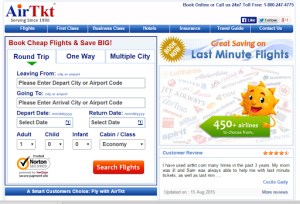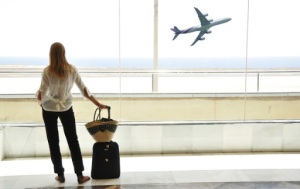Things to do before booking a flight
1. Airlines website or a Travel agency site: A dilemma but clearly the agent is the winner unless, of course, you are rushed for time and have odd hours available or you want to do it on your own. The web is convenient to the point that it will reflect the flights and their fare for the date and time slot you ask for. Whereas, with the agent it’s quite different. There is a personal touch to you by an expert who could guide you and provide you further information which the web does not. He could offer you cheaper fares with various combinations. The web offers promos too but they cannot be altered to suit your convenience. You have to accept them the way they are.
This makes the situation more interesting. These fares have been so designed that the cheapest ones are non-refundable ones which carry a high fee for any rebooking. This is a backup for the airline to recover its cost. For example, if M class is designated to the lowest fare, the airline allocates this fare to a portion of seats which are to be sold, say 30 out of the aircraft capacity of 114. Once these seats are sold the balance is a profit for the airline. Accordingly, the airline creates strata of fares in an increasing mode and dubs them as L, B, V, K, etc classes in the Economy class itself. These are sold according to the demand and the higher the fare, lesser the penalties for change, cancellation, etc. Of course there are a lot of variables with each airline having their own formulae but the above stated is the general approach. It is advisable, therefore, that you book a seat in advance to have a choice of a cheaper fare.
5. Children:
Certain precautions need to be taken when traveling with a child or children. Be careful on the timings of the flight so that the kids don’t become cranky.
- Pack proper clothes and food for them.
- Educate them as to what they are about to go through and how to behave in those surroundings.
- Non-stop flights should be the preference and arriving early at the airport is definitely advisable as any hiccups at the check-in or security would be passable.
- Aisle seats are always a better option as it also makes it easier for the flight attendants to interact with the children.
- Toys and some educational material should have been brought along as it keeps them from getting restless.
- Carrying crunchy snacks, lollipops, or suck able stuff is necessary as the ears tend to block whenever the flight is taking off or landing and chewing helps in making the ears pop.
6. Baggage Policy:
Most airlines nowadays discourage free check-in baggage allowance and instead, charge fees for them. The charges vary from airline to airline. However, fees for carry-on baggage are still not levied. Some airlines allow free check-in of the first baggage and charge for the second and subsequent ones.
When checked-in baggage is lost , the American carriers are liable to refund the baggage fees charged and a total reimbursable amount up to USD3300 is payable provided that the passenger files a claim with the airline declaring the contents and their value.
8. Flight Delayed or Cancelled:
On a domestic leg when a flight is delayed for reasons of weather, mechanical, air traffic control, an American carrier is not legally liable for monetary compensation as these are not predetermined but unavoidable delays. However, if you are held up for more than two hours at the tarmac, as a humane gesture, the airline must serve snacks and water.
9. Getting Offloaded:
An airline wants full occupancy, so it overbooks with the expectation that there will be a certain percentage of no shows. But sometimes contrary to its expectations all passengers turn up at the check-in counter. At that juncture, the airline has no alternative but to bump off or deny boarding to certain passengers. In other words they need to be offloaded. So the airline first asks for volunteers and offers them incentives like free ticket, food, lodging and /or cash.
Here you can negotiate for maximum benefits before agreeing to being offloaded.
10. Charter Flights:
This option is one that you have to be very careful with. Charter flights are generally organized by a travel agent or a group that has a tie-up with a hotel, resort or an event/festival. This agent or group buys up all the seats and then sells them as per the demand. This control makes you vulnerable to any decision taken by this individual/group as the decisions are based on the profitability of the venture and the charters usually run on very tight margins. Getting refunds in an eventuality may become a difficult proposition.
























